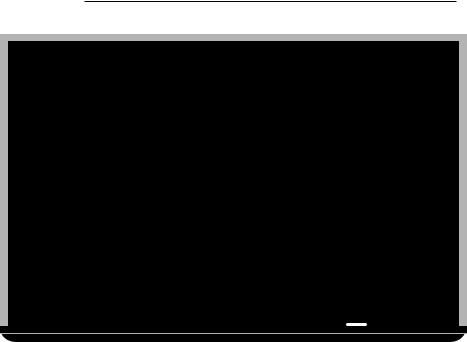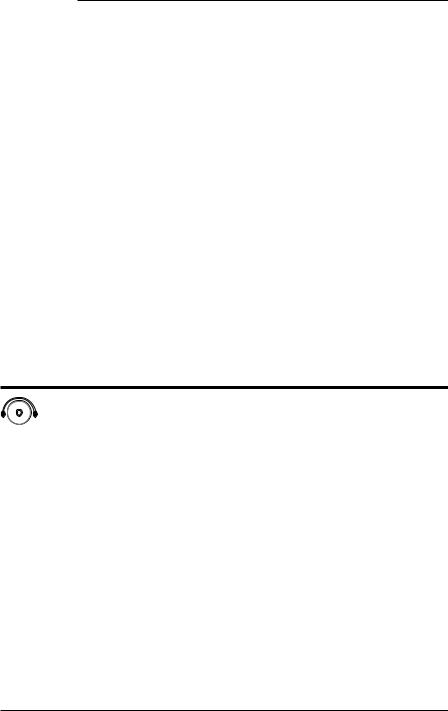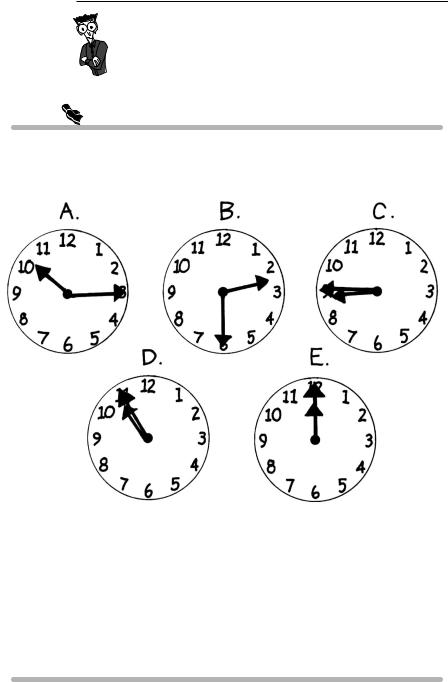
- •About the Authors
- •Dedication
- •Acknowledgments
- •Table of Contents
- •Introduction
- •About This Book
- •Conventions Used in This Book
- •Foolish Assumptions
- •How This Book Is Organized
- •Icons Used in This Book
- •Where to Go from Here
- •The French You’re Familiar With
- •Idioms and Popular Expressions
- •Key Parts of Speech
- •Cavorting with Verbs
- •Forming Sentences and Questions
- •The French Alphabet
- •Uttering Vowel and Consonant Sounds
- •Greetings: Formal and Friendly
- •Asking Questions to Get to Know People
- •Counting Your Lucky Stars: Numbers
- •Using the Calendar and Dates
- •Telling Time in French
- •Discussing Where You Live with the Verb “Habiter”
- •Discussing Daily Routine with Reflexive Verbs
- •Using Possessive Adjectives to Introduce Your Family Members
- •Basic Questions and Polite Expressions
- •Stating Your Preferences
- •Talking about Your Livelihood
- •Chatting about the Weather
- •Deciding to Keep in Touch
- •Getting Direction about Directions
- •Dining Out
- •Going to the Market
- •Going Shopping
- •Going Out with the Verb “Sortir”
- •Having Fun with the Verb “S’amuser”
- •Oh, the Places You’ll Go!
- •Making Plans with Friends
- •Making a Phone Call
- •Livin’ in the Past: Using the Past Tense
- •Playing Sports and Games
- •Going to the Beach
- •Setting Up Camp
- •Enjoying Quieter Pursuits
- •Where Do You Want to Go?
- •Getting Ready for Your Trip
- •Getting Current with Currency
- •Going to the Bank
- •Using Credit Cards and ATMs
- •Getting through the Airport
- •Navigating Buses, Trains, and Subways
- •Getting Around by Car
- •Finding Accommodations
- •Checking In to a Hotel
- •Checking Out of a Hotel
- •Getting Help Fast
- •Getting Medical Help
- •Handling Legal Matters
- •Label the Things in Your House
- •Write Your Shopping Lists in French
- •Listen to French Music
- •Watch French Movies
- •Tune in to TV5
- •Read French Publications
- •Take a Class
- •Join a French Association
- •Join an Online Chat or Pen Pal Forum
- •Using “Tu” When You Mean “Vous”
- •Using “Bonne nuit!” for Good-Bye
- •Using “Garçon” or “Porteur” to Address Service Staff
- •Saying “Je suis excité(e)” to Indicate Excitement
- •Saying “Je suis chaud(e)/froid(e)” to Say You’re Hot or Cold
- •Saying “Je suis plein/e” to Mean You’re Full
- •Using “de la glace” to Request Ice
- •Using “Je suis . . . ans” to Tell Your Age
- •Asking for Change with “J’ai besoin de change”
- •Using the Verb “Visiter” in Reference to People
- •“À mon avis”
- •“C’est pas vrai”
- •“Avec plaisir”
- •“C’est génial”
- •“À votre santé”
- •“À vos souhaits”
- •“Quelle horreur!”
- •“À bientôt”
- •“Passez-moi un coup de fil!”
- •“On y va!” or “Allons-y!”
- •“Je n’en sais rien”
- •“Je n’en reviens pas”
- •“Ça vaut la peine”
- •“C’est pas grave”
- •“N’importe”
- •“Tu cherches midi à 14h”
- •“Prenons un pot!”
- •Regular French Verbs
- •Auxiliary French Verbs
- •Track Listing
- •Customer Care
- •Index

62 |
Part I: Getting Started |
Words to Know
ma soeur |
mah suhr |
my sister |
se marier |
suh mah-ryey |
to get married |
Quand |
kahN-tehg-zah-ktuh-mahN |
When exactly? |
exactement? |
|
|
Quel jour? |
kehl zhoohr |
What day? |
À quelle heure |
ah kehl uhr eh. . . ? |
What time is. . . ? |
est. . . ? |
|
|
la cérémonie |
lah sey-rey-moh-nee |
the ceremony |
Telling Time in French
One of the most important and frequent uses of numbers is, of course, to tell time. The French use both the familiar 12-hour clock and the official 24-hour clock to tell time.
Using the 12-hour clock
To express the time in French using the 12-hour system, you begin with il est (eel eh) (it is) and add a number representing the hour and then the word heure(s) (uhr) (time, o’clock). Use the singular heure when it’s 1:00; use the plural heures for all other hours. Here are some examples:
Il est huit heures. (eel eh weet-uhr.) (It’s 8 o’clock.)
Il est neuf heures. (eel eh nuhv-uhr.) (It’s 9 o’clock.)
Il est une heure. (eel eh ewn-uhr.) (It’s 1 o’clock.)
Of course, the time isn’t always exactly on the hour. Therefore, you need a way to indicate time past and before the hour, too. To indicate time past the hour, you can simply follow the phrase il est. . .heure(s) with the number of minutes it is past the hour. To express time before the hour (10 minutes to
www.ATIBOOK.ir

Chapter 4: Getting Your Numbers, Dates, and Times Straight |
63 |
2:00, for example), you add the word moins (mwaN), which means minus. Consider these examples:
Il est huit heures dix. (eel eh weet-uhr dees.) (It’s 8:10 or It’s 10 past 8.)
Il est huit heures moins dix. (eel eh weet-uhr mwaN dees.) (It’s 7:50.
[Literally: It’s 8:00 minus 10.])
Il est dix heures moins vingt-cinq. (eel eh deez-uhr mwaN vahN-saNk.) (It’s 9:35 or It’s 25 to 10:00. [Literally: It’s 10:00 minus 25 minutes.])
Alternatively, you can use these French phrases:
et quart (ey kahr) (quarter after). For example: Il est neuf heures et quart. (eel eh nuh-vuhr ey kahr.) (It’s 9:15 or It’s quarter past nine.)
et demi (e) (ey duh-mee) (half-past). For example: Il est huit heures et demie. (eel eh weet-uhr ey duh-mee.) (It’s half past 8:00.)
moins le quart (mwaN luh kahr) (quarter till). For example: Il est neuf heures moins le quart. (eel eh nuhv-uhr mwaN luh kahr.) (It’s quarter to 9:00.)
To distinguish between a.m. and p.m. in the 12-hour clock, use these phrases after the time:
du matin (dew mah-taN) (in the morning)
de l’après-midi (duh lah-preh-mee-dee) (in the afternoon)
du soir (dew swahr) (in the evening)
midi (mee-dee) (noon)
minuit (mee-nwee) (midnight)
Here are a couple of examples:
Il est 10 heures du matin. (eel eh deez-uhr dew mah-taN.) (It is 10:00 in the morning [a.m.])
Il est 10 heures du soir. (eel eh deez-uhr dew swahr.) (It is 10:00 in the evening [p.m.])
Both midi and minuit are masculine, so when you say half past noon or half past midnight, you don’t add an e to the word demi: Il est midi et demi (eel eh mee-dee ey duh-mee) (It’s half past noon).
In North America, we abbreviate time in the hour:minute format: 12:15 for example, or 3:35. In France, time is abbreviated differently. Instead of using a colon to separate the hour from the minutes, you use a lowercase h. For example, 11:30 becomes 11h30. You abbreviate in the same way whether you’re using the 12-hour system or the 24-hour system. For example, 10h30 means 10:30 a.m. and 22h30 means 10:30 p.m.
www.ATIBOOK.ir

64 |
Part I: Getting Started |
Using the 24-hour routine
In Europe, as well as French-speaking Canada, the use of the 24-hour clock, or military time, is very common. It’s used for all transportation schedules, concert times, store hours, appointment times, and any other scheduled events. When you use the 24-hour clock, you don’t need to distinguish between a.m. or p.m.
If you’re accustomed to the 12-hour system, telling time by the 24-hour clock may be a little confusing. Here’s what you need to know: You count up from 1:00 a.m. to 12:00 noon just as you’re used to, but instead of starting over again at 1, you keep counting up: 13:00, 14:00, and so on until you hit 24:00, which is midnight. So 13:00 is 1:00 p.m., 14:00 is 2:00 p.m. and so on.
To say what time it is in the 24-hour system, simply add the number of minutes to the hour. Here are some examples:
Il est 11h15 [onze heures quinze]. (eel eh ohNz uhr kaNz.) (It’s 11:15 [a.m.].)
Il est 16h10 [seize heures dix]. (eel eh sehz uhr dees.) (It’s 4:10 [p.m.].)
Talkin’ the Talk
Pierre and Claire are running late. (Track 3)
Pierre: Claire, quelle heure est-il? klehr, kehl uhr eh-teel?
Claire, what time is it?
Claire: Il est 10h10 (dix heures dix). eel eh deez-uhr dees.
It’s 10:10 am.
Pierre: Il est 10h10 (dix heures dix)? eel eh deez-uhr dees?
It’s 10:10 am?
Claire: Oui, nous sommes en retard. wee, nooh-sohmz-ahN ruh-tahr.
Yes, we’re late.
Pierre: Oh non! Allons-y! Dépêchons-nous!
oh nohN! ahl-ohN-zee! dey-pehsh-ohN-nooh!
Oh no! Let’s go! Hurry up!
www.ATIBOOK.ir

Chapter 4: Getting Your Numbers, Dates, and Times Straight |
65 |
Words to Know
Il est. . . heures |
eel eh. . . uhr |
It’s. . . o’clock |
et quart |
ey kahr |
quarter past |
et demi(e) |
ey duh-mee |
half past |
moins. . . |
mwaN. . . |
(minus) to. . . |
moins le quart. . . |
mwaN luh kahr. . . |
quarter to. . . |
Quelle heure est-il? |
kehl uhr eht-eel? |
What time is it? |
être en retard |
eh-truh ahN reh-tahr |
to be late |
Allons-y! |
ahl-ohN-zee! |
Let’s go! |
Dépêchons-nous! |
dey-pehsh-ohN-nooh! |
Let’s hurry up! |
www.ATIBOOK.ir

66 |
Part I: Getting Started |
 Fun & Games
Fun & Games
Write the time in 12-hour format and 24-hour format for each of the following clocks.
In 12-hour format |
In 24-hour format |
A._______________________ |
______________________ |
B._______________________ |
______________________ |
C._______________________ |
______________________ |
D._______________________ |
______________________ |
E._______________________ |
______________________ |
www.ATIBOOK.ir
